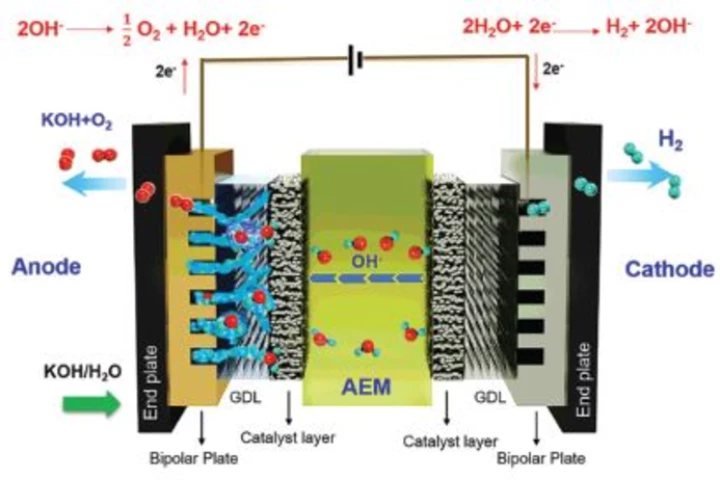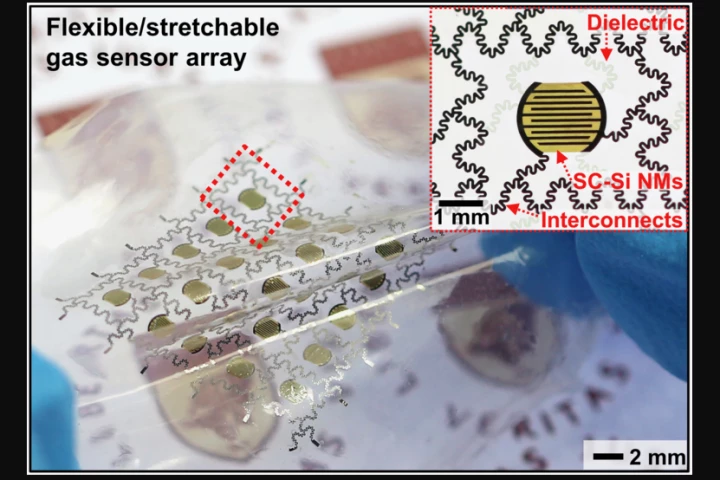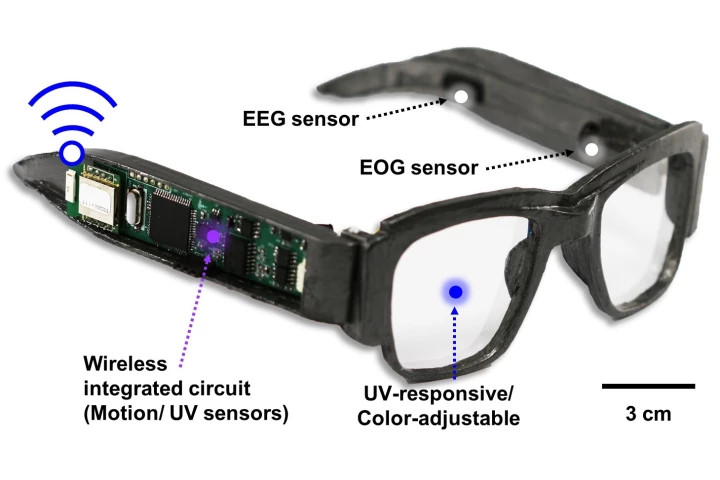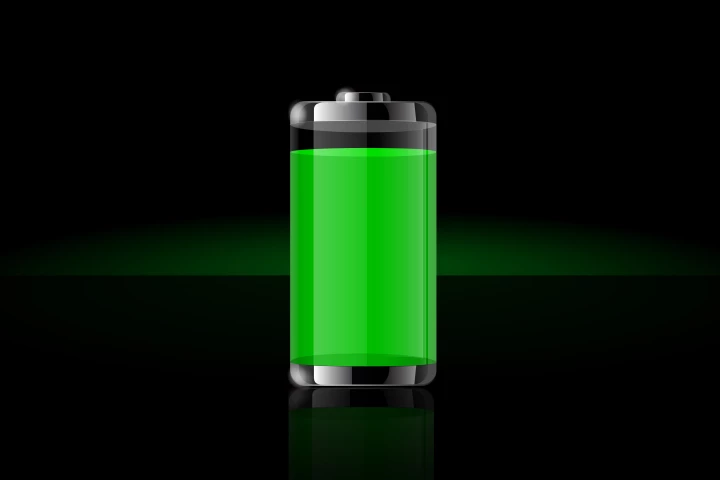KIST
-
While a stethoscope will tell you if someone has a respiratory ailment, it will only share that info in the few minutes it's being used. A new device could paint a much bigger picture, by monitoring the patient's breathing for days at a time.
-
If you don't like getting needles or working out, this new medical wearable may be for you. It analyzes sweat instead of blood, and it doesn't require patients to generate that sweat by performing strenuous exercises.
-
In a highly unexpected approach to renewable energy, researchers in Korea have developed a low-cost, easily-manufactured advanced membrane that actually generates electricity as it turns wastewater, seawater or groundwater into drinking water.
-
When a pacemaker's battery gets low, the whole implant typically has to be surgically replaced. Scientists are therefore developing a noninvasive battery recharging system, which utilizes externally applied ultrasound.
-
Electrolysis is a key component of the cost of green hydrogen, and a Korean team says it's made a huge breakthrough with an anion exchange membrane that's not only cheaper than current proton exchange tech, but offers some 20 percent better performance.
-
While brain-implanted electrodes do show promise for applications such as restoring capabilities to the disabled, they tend to lose their functionality over time. A new coating, however, could allow them to work much longer once implanted.
-
Colorless polyimide (CPI) is a flexible alternative to glass, increasingly being used in bendable smartphone screens. It still can crack, however, which is why scientists have developed a self-healing version that incorporates linseed oil.
-
While we have been hearing about the development of health-monitoring implantable sensors, most such devices would have to be surgically removed once no longer needed. An experimental new one, however, would just harmlessly dissolve.
-
Carbon fiber composites may be light and strong, but making them resistant to fire has been a challenge. Now, though, Korean scientists have discovered that a plant-derived substance both keeps them from burning and makes them easier to recycle.
-
We've already seen electronic glasses that watch the wearer's diet and automatically change focus, among other things. An experimental new pair monitors the user's health, lets them control games, and switch to being sunglasses as needed.
-
EV batteries have improved, but their limited ability to store energy still keeps many people from giving up their gas-burning cars. That may be about to change, as a new anode material is said to offer a whopping four-fold increase in capacity.
-
Octopi are well-known for their grabby tentacles. Now, scientists have developed a material that mimics the sucker discs on those tentacles. It could be used for adhesive pads that are reversible, reusable, fast-acting, and effective even in wet conditions.
Load More











